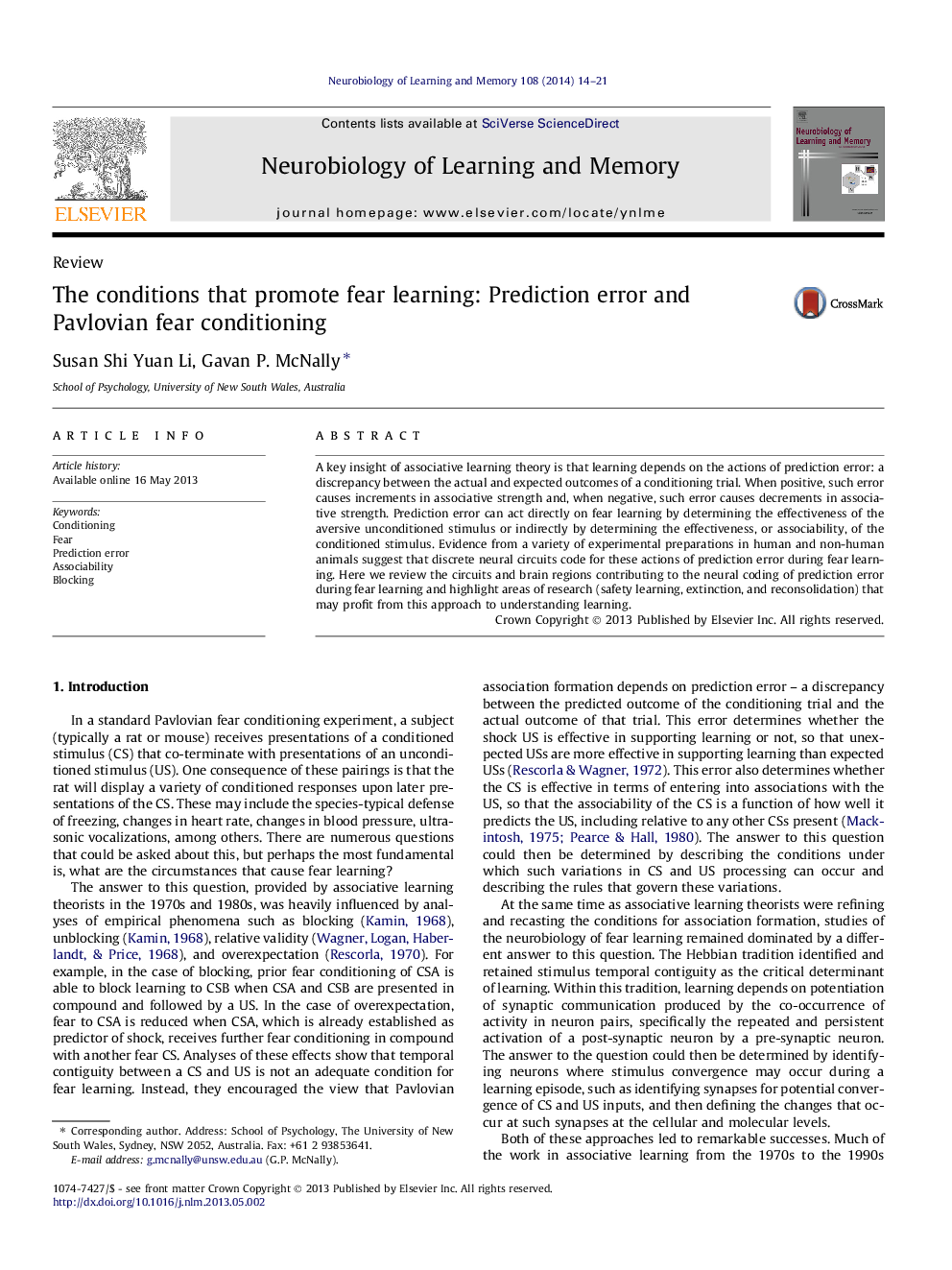| کد مقاله | کد نشریه | سال انتشار | مقاله انگلیسی | نسخه تمام متن |
|---|---|---|---|---|
| 936558 | 1475167 | 2014 | 8 صفحه PDF | دانلود رایگان |
• Prediction error determines association formation during fear learning.
• It determines effectiveness of the unconditioned stimulus in supporting learning.
• It determines variations in effectiveness of the conditioned stimulus as a signal.
• Dissociable neural circuits code for these two actions of prediction error.
A key insight of associative learning theory is that learning depends on the actions of prediction error: a discrepancy between the actual and expected outcomes of a conditioning trial. When positive, such error causes increments in associative strength and, when negative, such error causes decrements in associative strength. Prediction error can act directly on fear learning by determining the effectiveness of the aversive unconditioned stimulus or indirectly by determining the effectiveness, or associability, of the conditioned stimulus. Evidence from a variety of experimental preparations in human and non-human animals suggest that discrete neural circuits code for these actions of prediction error during fear learning. Here we review the circuits and brain regions contributing to the neural coding of prediction error during fear learning and highlight areas of research (safety learning, extinction, and reconsolidation) that may profit from this approach to understanding learning.
Journal: Neurobiology of Learning and Memory - Volume 108, February 2014, Pages 14–21
